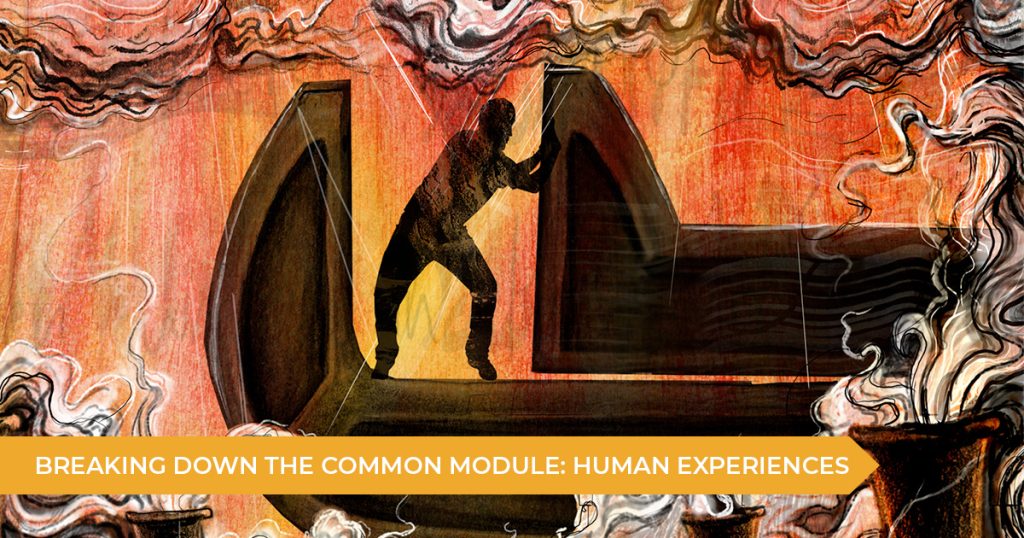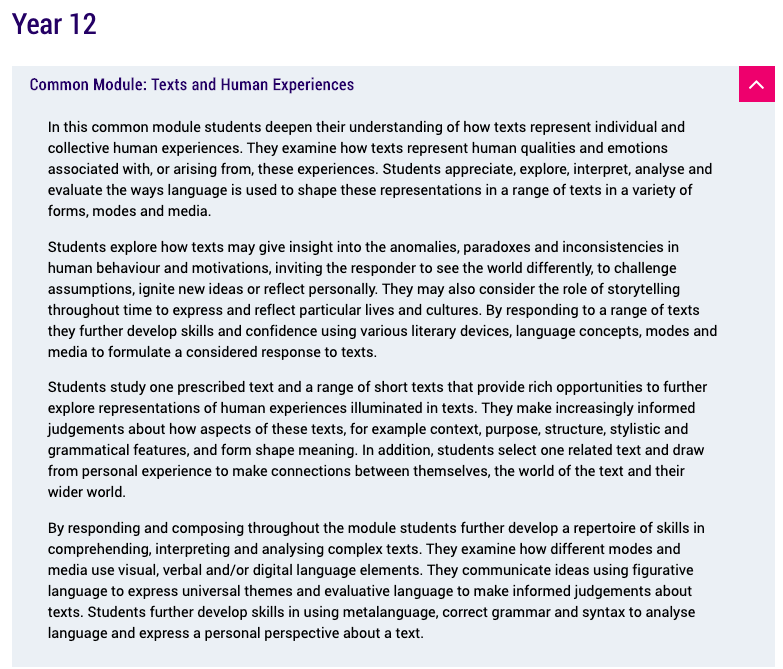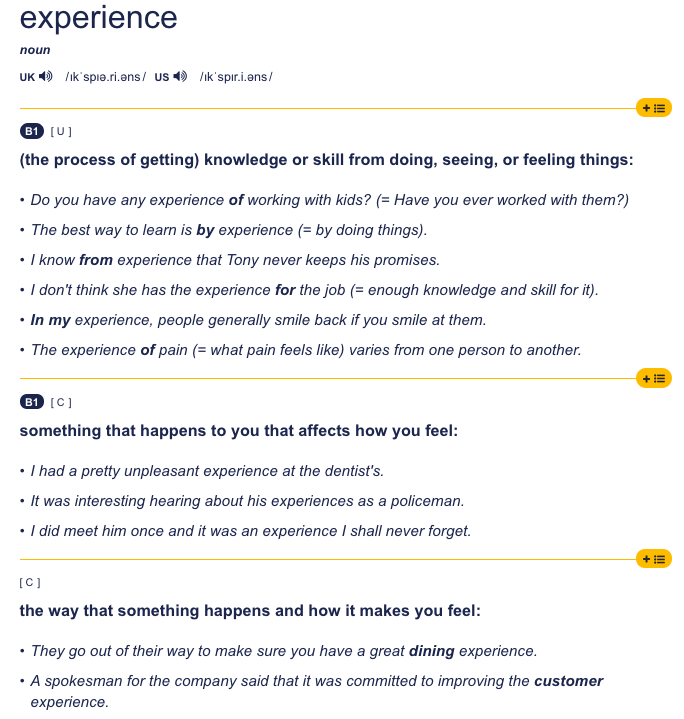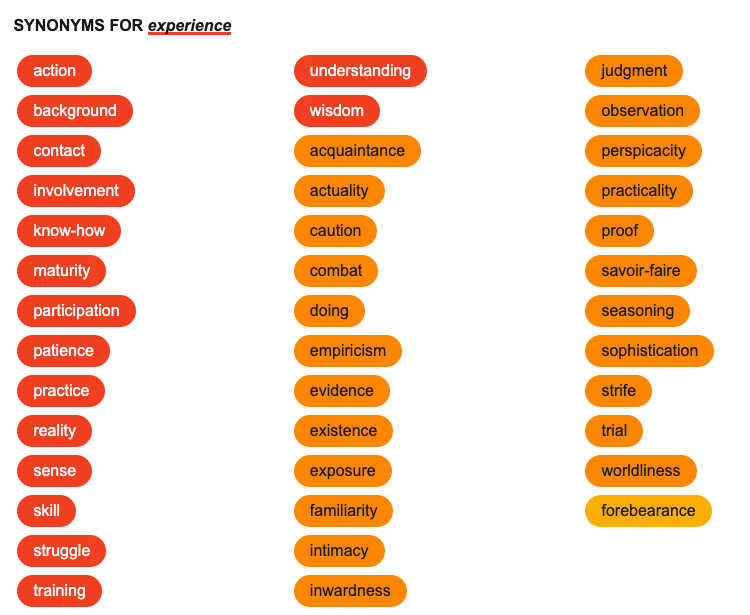Common Module: Texts and Human Experiences is the only module studied across all three HSC levels of English.

This covers English Studies, Standard and Advanced – and it is often the first module that schools will approach.
In many ways, it is arguably the easiest module to do well in, but it does involve a very technical approach because it requires you to demonstrate an in-depth understanding of different types of human experiences. Students also have to show a level of personal engagement and interpretation with the texts.
Through this first blog post, we will aim to understand how this module will be tested in the HSC exam, NESA’s requirements in relation to the idea of ‘human experiences’, how we can define this complex term, and where the ‘related text’ fits into the module.
Paper 1: Texts and Human Experiences
Students are required to sit two HSC exam papers for English and this module is the basis of the first paper which means it will be the first module that you will be tested on. Better set the right tone!
The first paper is divided into two sections. The first section is worth 20 marks and students are required to read and analyse 1-5 unseen short stimulus (featuring text types such as fiction, non-fiction extracts, poems, and images) on the spot in order to answer 1-5 short answer questions based on the overall idea of human experiences.
In the second section, which is also worth 20 marks, students will attempt one essay question. We can either get a general question which students of all prescribed texts will attempt to answer, or a prescribed text specific question. Regardless of the question style, students are expected to incorporate theories of human experiences.
It is crucial that students know how to navigate the physical exam paper to make sure they are answering the correct question (and these mistakes happen more often than you think!) At Talent 100, students are required to sit for a formal exam every term to enhance their familiarity with HSC exam conditions and practice their exam skills.
RELATED: Which Books Will Develop My HSC English Skills?
Unpacking the Human Experience Module
First, let’s have a look at the requirements set out by NESA. The module allows us to understand what NESA is looking for and specific areas of focus. Students should focus particularly on the first and second paragraph which we will now expand on.

Secondly, let’s identify some important points:
– Human experiences can be divided into individual and collective human experiences
– Human experiences can contribute to a range of human qualities and emotions
Our prescribed and related text will:
– Provide insights into the anomalies, paradoxes and inconsistencies in human behaviour and motivations.
– Invite us to see the world differently.
– Challenge our assumptions.
– Ignite new ideas and encourage us to reflect personally.
Defining Human Experiences
Let us attempt to further understand and define the idea of human experiences. Unfortunately, NESA has not given us a definition but this is due to good reason.
Before anything else, Cambridge English Dictionary defines ‘experience’ in the following way:

Clearly, it is impossible to uncover the range of human experiences within one or two paragraphs. Can you list out all the different types of experiences you have encountered in the past year? To get us started, consider these human experiences:
– Going to school, work, volunteering or hanging out with friends;
– Regular everyday occurrences such as speaking, typing, walking, exercising;
– Feeling emotions or reactions such as love, excitement, fear, anger;
– Associations with certain cultures, societies, beliefs, value-system;
– Transformations in your personal identity, confidence-level, knowledge;
– Major life milestones including birth, childhood, adulthood, marriage, death;
– And many more.
RELATED: How To Read & Understand Shakespeare
The idea of ‘experience’ is something innately connected to the human condition and it is something we through each dat – whether mundane or dramatic – in order to uncover changes (and these can be positive or negative as implied by the above dot-points). Experiences can vary greatly between individuals, groups and countries.
Another helpful way for us to further understand the idea of human experiences is by looking at the synonyms of the word ‘experience’ (this is also a great list, so you don’t have to write ‘experience’ over and over again on your essays!):

This list hows us the vast array of words that our language has created around this concept. If you remember it, you have experienced it.
It is your job to identify the range of human experiences explored in your prescribed and related text. If you are feeling overwhelmed, start by reading the NESA guide appropriately titled English Stage 6: Annotations of selected texts prescribed for the Higher School Certificate 2019-23.
This document provides some elementary insights into each of the prescribed texts set for study. It is a great place to gain an elementary perspective of how your text relates to the human experience.
Consider this exercise: think about one memorable experience you have had in your life. What kind of emotions were aroused? Did it motivate certain behaviour from you? Did any of your perspectives, assumptions or knowledge change as a result? Overall, would you say the experience was positive or negative? How did it affect you as a person?
Now, consider the same questions in a group setting.
This is essentially what we will be exploring, discussing and analysing in the common module.
RELATED: How To Manage Time in the HSC English Exams – Paper 1 & 2
Related Texts
Lastly, a related text is a text that students personally elect for studying themselves in addition to the prescribed text chosen by school, as part of the common module.
The related text should contain some relationship and links to your prescribed text, hence the term ‘related’ text. This means students are required to explore the related text through the lens of human experiences.
According to NESA, students are required to be tested on the related text as part of the in-school common module assessments. However, it will no longer be tested in the actual HSC exam.
In our next blog post, we will have a look into the different types of human experiences and how we can organise our ideas within the context of our prescribed text.
Excel in English this year with the help of Talent 100. Learn more about our Advanced English course structure, 1-1 tutorials, weekly writing tasks and how we can prepare you for the HSC with face-to-face and online class options. Click here for more information.
Written by our Talent 100 HSC English Advanced Mentor, Joanne Wu.




